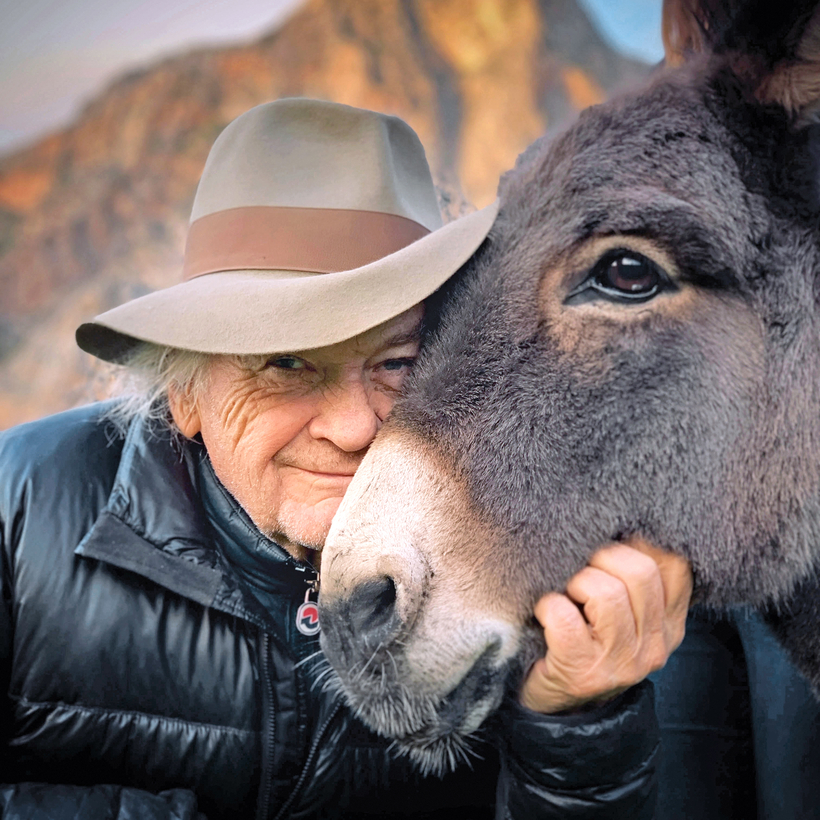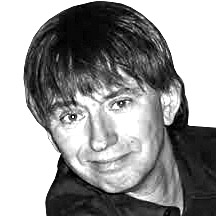If ever a movie proved that humans’ assumption of earthly dominance was a mistake, it is Eo, which is playing now at New York’s Film Forum. This eco-conscious live-action drama, directed by 84-year-old Jerzy Skolimowski, is told from the perspective of a donkey that embarks on a forlorn odyssey to be re-united with the doting circus girl he was wrenched from by animal activists.
The venerable Polish filmmaker and his co-writer, producer, and wife, Ewa Piaskowska, considered using other animals before they settled on a donkey. The inspiration was Robert Bresson’s celebrated Au Hasard Balthazar, the story of a donkey and a farm girl maltreated by the young thug she blindly adores.

Skolimowski, seated beside Piaskowska in a recent Zoom conversation (which their dog bounded into), recalled that he first became acquainted with poor Balthazar on learning his first feature, Walkover, had been topped only by Bresson’s masterpiece in a Cahiers du Cinéma poll of the 10 best films of 1966.
“I loved Au Hasard Balthazar, of course,” Skolimowski says, “but the greatest surprise for me was at the end I had tears in my eyes, which never happened before or after. Having this professional inclination to see how things are done in films and not letting myself be taken by emotions, I had a semi-cynical attitude to what my colleagues did to make a scene work. But there I was really crying, which was the greatest lesson I learned in cinema. And the lesson was that an animal character can move an audience stronger than any human character because we know actors are performing.”
Piaskowska says they chose to make their protagonist a donkey “by pure accident when we were spending our winter holiday in Sicily, where we go to escape the Polish gloom. We saw an incredible presepe vivente, which is a Nativity play, in one of the Scurati Caves in Custonaci. Amidst all the commotion, right behind Joseph, Mary, and the baby Jesus, there stood a donkey looking at everything with huge melancholic eyes. Right there, we decided that a donkey would be our character, and only then were we reminded of the Bresson film.”

Made to suffer like Balthazar, little Eo also makes the tears flow, but in a film that isn’t overtly sentimental, his role is that of a moral observer. He travels across a modern Europe morphing into an industrial hell and peopled by the corrupt, the vile, and the vicious. The donkey’s only human counterpart is a terrified, starving female immigrant.
Skolimowski and Piaskowska didn’t need to anthropomorphize Eo (who was played by six different donkeys) because his silence and occasional brays eloquently protest mankind’s destructiveness and turpitude. The perverse relationship between a bankrupt aristocrat (played by Isabelle Huppert) and her prodigal stepson, a defrocked priest, elicits one of Eo’s angriest hee-haws. As Eo pads heartbreakingly toward his fate, his intelligence and stoicism shine out inextinguishably.
Where Au Hasard Balthazar was shot austerely and elliptically in black and white, Eo unfurls its mysteries in color. At one point, Eo crosses an ancient Jewish cemetery, encountering “the ghosts of human history,” Piaskowska says. Electrical red—signaling danger, says Skolimowski, who has a separate career as a painter—flickers through Eo’s journey.

A wolf, a fox, a spider, an owl, and other creatures of the night lurk in the shadows as Eo negotiates a forest, though it’s clear they’re united against the common enemy that has installed a deadly laser to guard an unseen facility. When Eo ends up in an animal hospital, the caged beasts there give the camera a “J’accuse” look.
Skolimowski—who took to whispering in his asinine actors’ ears whenever the crew was eating lunch—won’t be drawn on whether donkeys are the most stubborn actors he’s worked with. “I confess, though, that I still have dreams about donkeys,” he says. “This animal is somehow inside me. Never in my so-called career have I been so involved with the subject of a film, and I think the strength of it is that it was made out of love for animals. I believe it will maybe make a minimal change in the human attitude toward them.”
Eo is currently playing at Film Forum, in New York
Graham Fuller is a New York–based film critic

